This website uses cookies so that we can provide you with the best user experience possible. Cookie information is stored in your browser and performs functions such as recognising you when you return to our website and helping our team to understand which sections of the website you find most interesting and useful.
Support truly
independent journalism
Our mission is to deliver unbiased, fact-based reporting that holds power to account and exposes the truth.
Whether $5 or $50, every contribution counts.
Support us to deliver journalism without an agenda.

Louise Thomas
Editor
A man who lost his wife to breast cancer before his own rare breast cancer diagnosis and mastectomy has warned men not to ignore lumps in their chest as the disease “does not discriminate”.
Mark Thatcher, 62, who lives in the New Forest, Hampshire, was widowed after his first wife died of breast cancer in 2010, but he does not wish to disclose her name.
Mark, who works in hospitality with his wife Lynn, 62, a farmer, initially ignored a “pea-sized” lump in his left breast but was then diagnosed with breast cancer in September 2020 – a disease which affects just 400 men every year in the UK, according to the charity Breast Cancer Now.
He underwent a mastectomy to remove his left breast later that month, before being prescribed the hormone therapy drug Tamoxifen, which he took for three years before extreme side effects forced him to stop – meaning he now receives no cancer treatment and fears the disease could return.
Up until recently, Mark said he had never met another man who had been diagnosed with breast cancer – and even his GP told him recently: “You’re in the wilderness.”
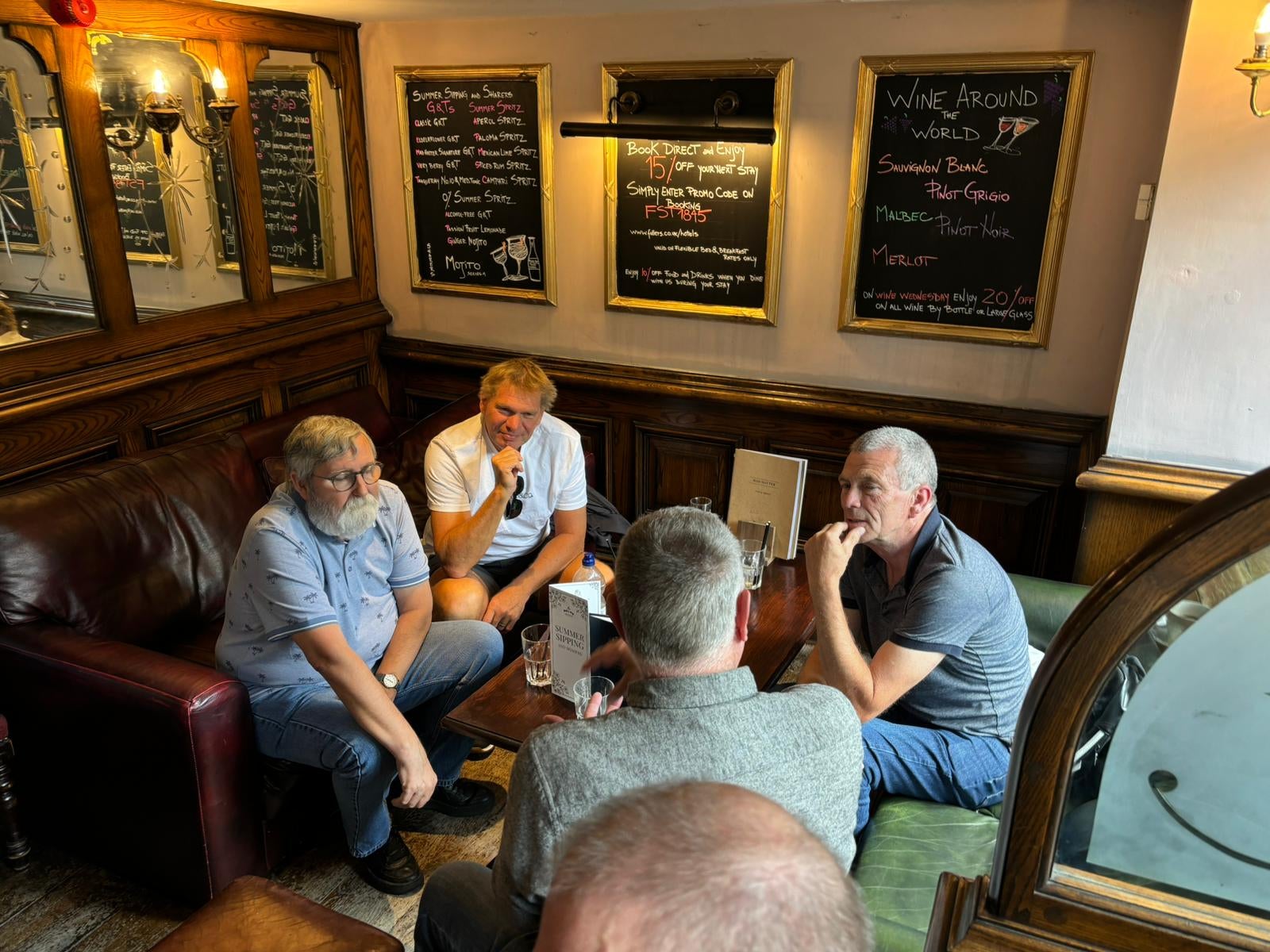
Having met other male breast cancer patients through The Men’s VMU (Virtual Meet-up) – a male-dedicated support group for men diagnosed with breast cancer – he wants to raise more awareness of the disease.
Mark told PA Real Life: “Men have got to be made aware that they can get breast cancer and they must not ignore lumps in their breasts.
“Cancer doesn’t discriminate between men and women. It’s a killer, it’s deadly, and it destroys families.”
In August 2020, Mark asked his wife Lynn to feel a “pea-sized” lump that had developed in his left breast.
Being a “typical male”, Mark said he had ignored the growth of this lump and was waiting for it to “disappear” – but the mass remained one month later, and Lynn “insisted” that he visit his GP.
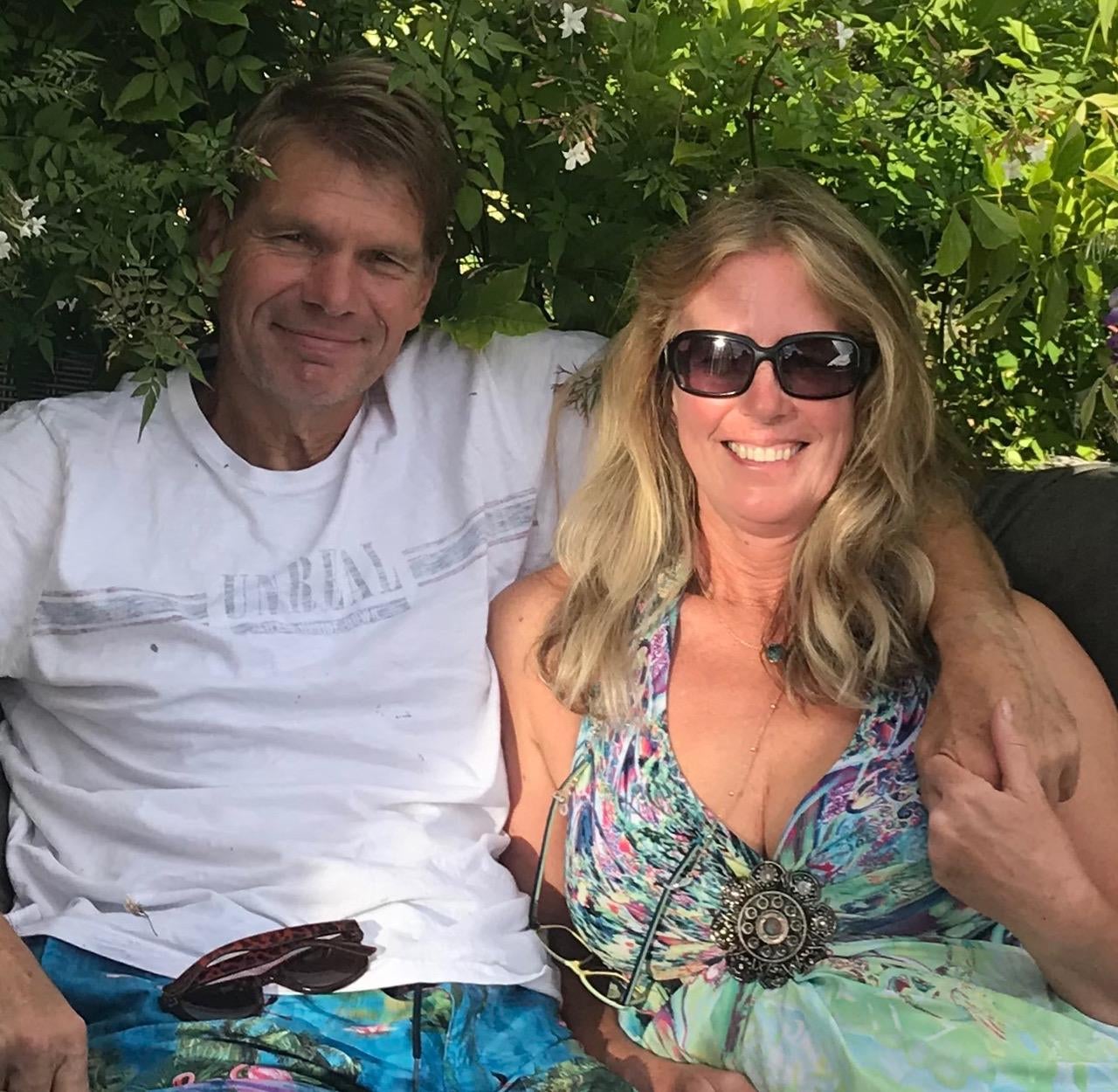
The doctor initially told Mark that it was an age-related fatty lump and extremely unlikely to be cancerous, but because Mark raised concerns because of his experience with his first wife, he was referred to University Hospital Southampton to “put his mind at rest”.
An ultrasound at the hospital taken by “brilliant” nursing staff then revealed Mark had two lumps in his left breast – with the one below the benign mass confirming he had breast cancer in September 2020.
“The surgeon, who eventually operated on me, chaired the meeting and apologised and said, ‘It is bad news – you have got breast cancer’,” Mark said.
“He said, ‘It’s very rare in men and you’re the first male breast cancer case that we’ve had this year’.”
According to Breast Cancer Now, around 55,000 women and 400 men are diagnosed with breast cancer every year in the UK.
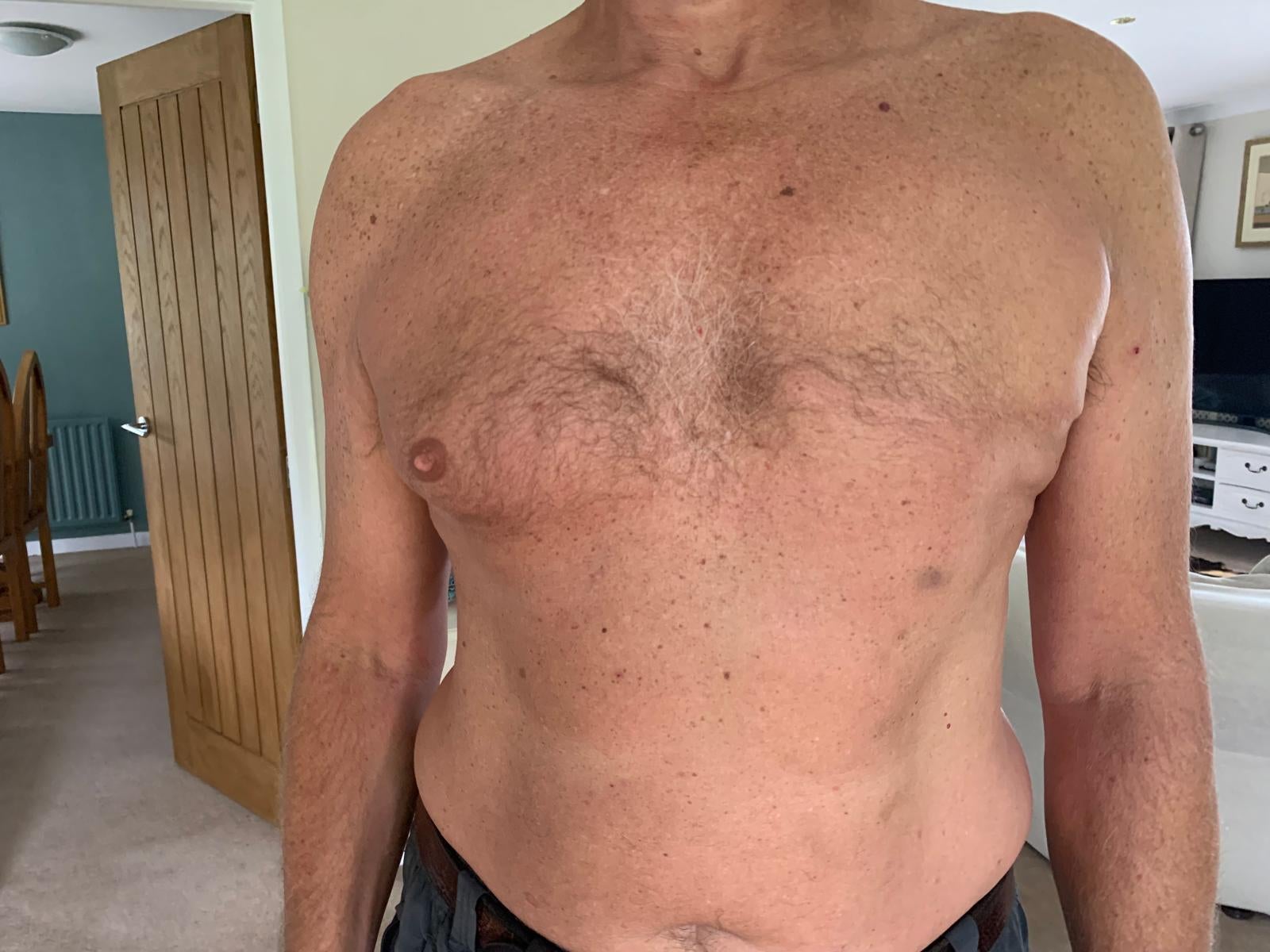
Mark said he “wasn’t aware men could get breast cancer” and was told the next steps would involve a single mastectomy, followed by at least five years of taking Tamoxifen.
With Lynn unable to accompany him to appointments because of Covid-19 restrictions at the time, Mark said taking in all this information alone was overwhelming.
Moreover, he felt like “a complete fish out of water” being surrounded by women in the breast cancer unit waiting room and said there was no information, images, or booklets tailored towards male breast cancer patients.
On September 24 2020, Mark underwent the procedure to remove his left breast and it was successful – and that evening, he was able to return home with Lynn, who has been “marvellous” and his “entire support”.
However, he said he was shocked at how the mastectomy impacted him, as it made him feel “incomplete and emasculated”.
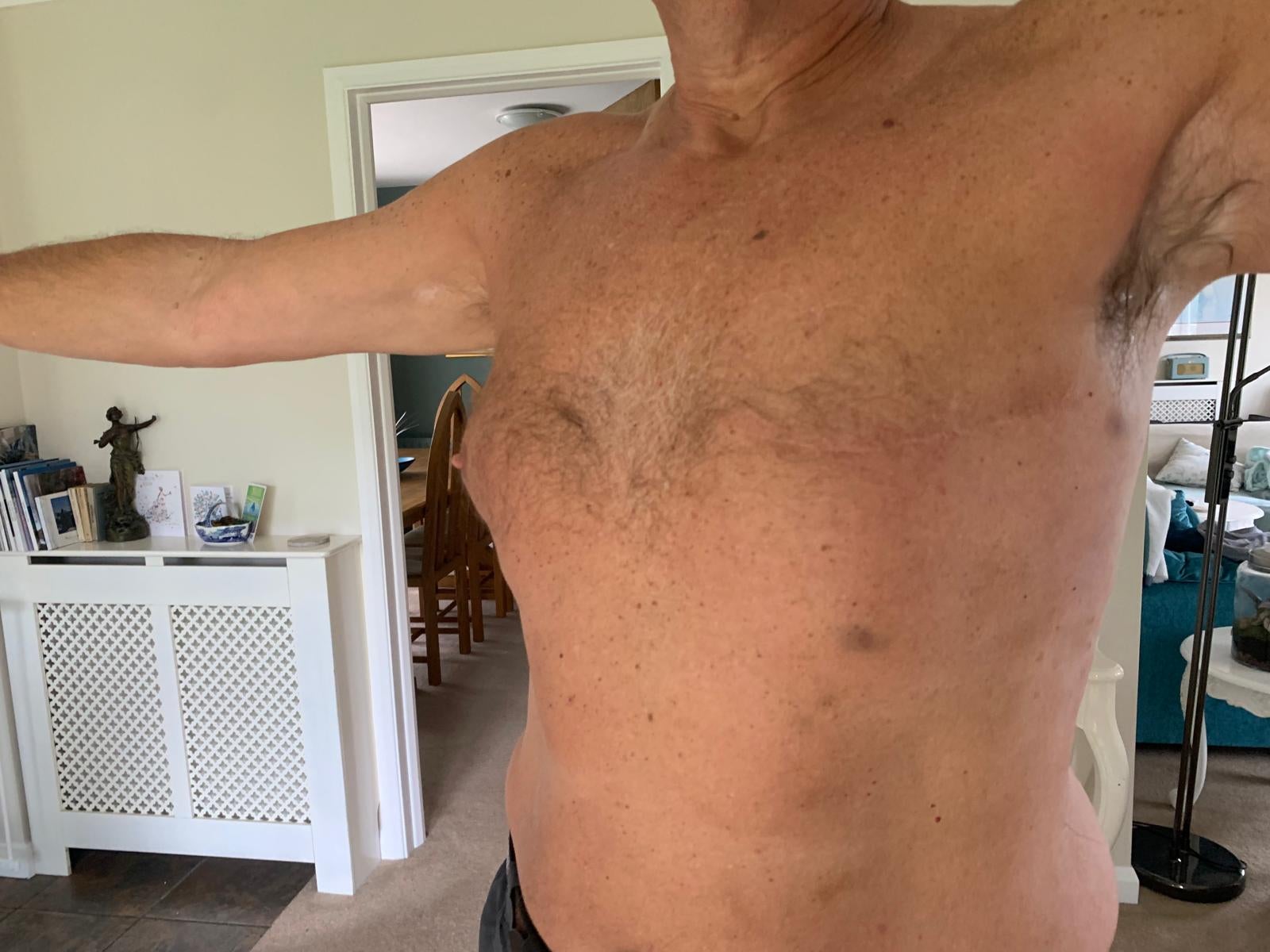
He said: “I don’t remember pain; I just didn’t want to look at that part of me at all.
“I don’t consider myself a vain person, but I just didn’t know what to expect, and I had a mass of dressing over my chest.
“I was dreading what it was going to actually look like … and it took me around six months to be able to look at myself in the mirror.”
The day after his operation, he started taking Tamoxifen, and later he threw himself back into work as an accountant as a “distraction”.
However, he soon started experiencing side effects from the medication, which included hot flushes, night sweats that would leave him “dripping” and having to sleep on towels, brain fog, and low libido.
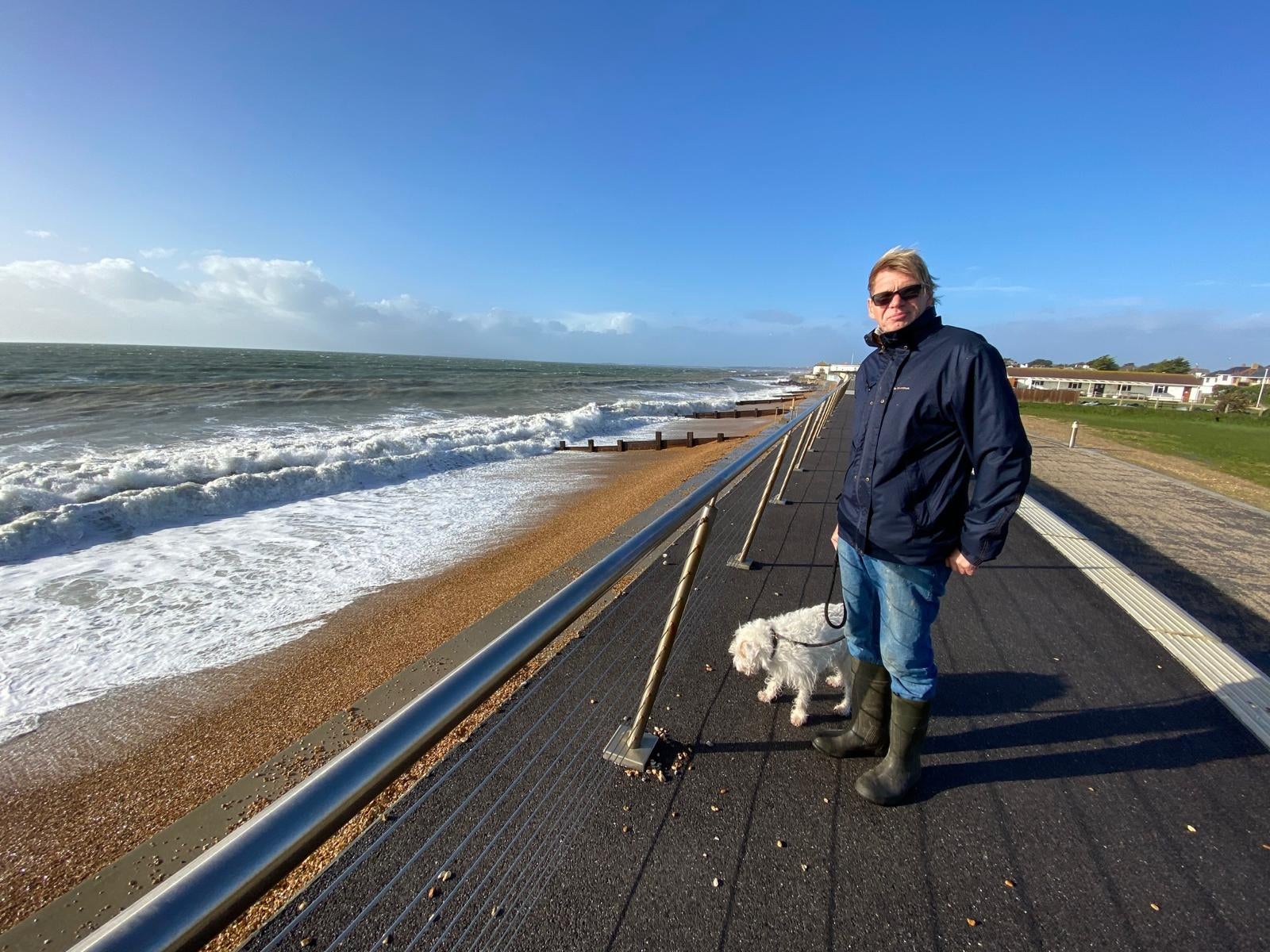
After three years of taking Tamoxifen, Mark was feeling “out of breath” playing tennis and noticed he had bruising on his body.
He booked an appointment with a locum doctor and blood tests and a CT scan later revealed he had developed a pulmonary embolism – a blood clot – and he was told he needed to stop taking the medication immediately.
Although “life improved so much” without Tamoxifen, he said this was a catch-22 as the medication is “supposed to prolong your life”.
“Since stopping, I have no cancer medication, I have no annual checks so, as my GP said, you’re in the wilderness,” Mark said.
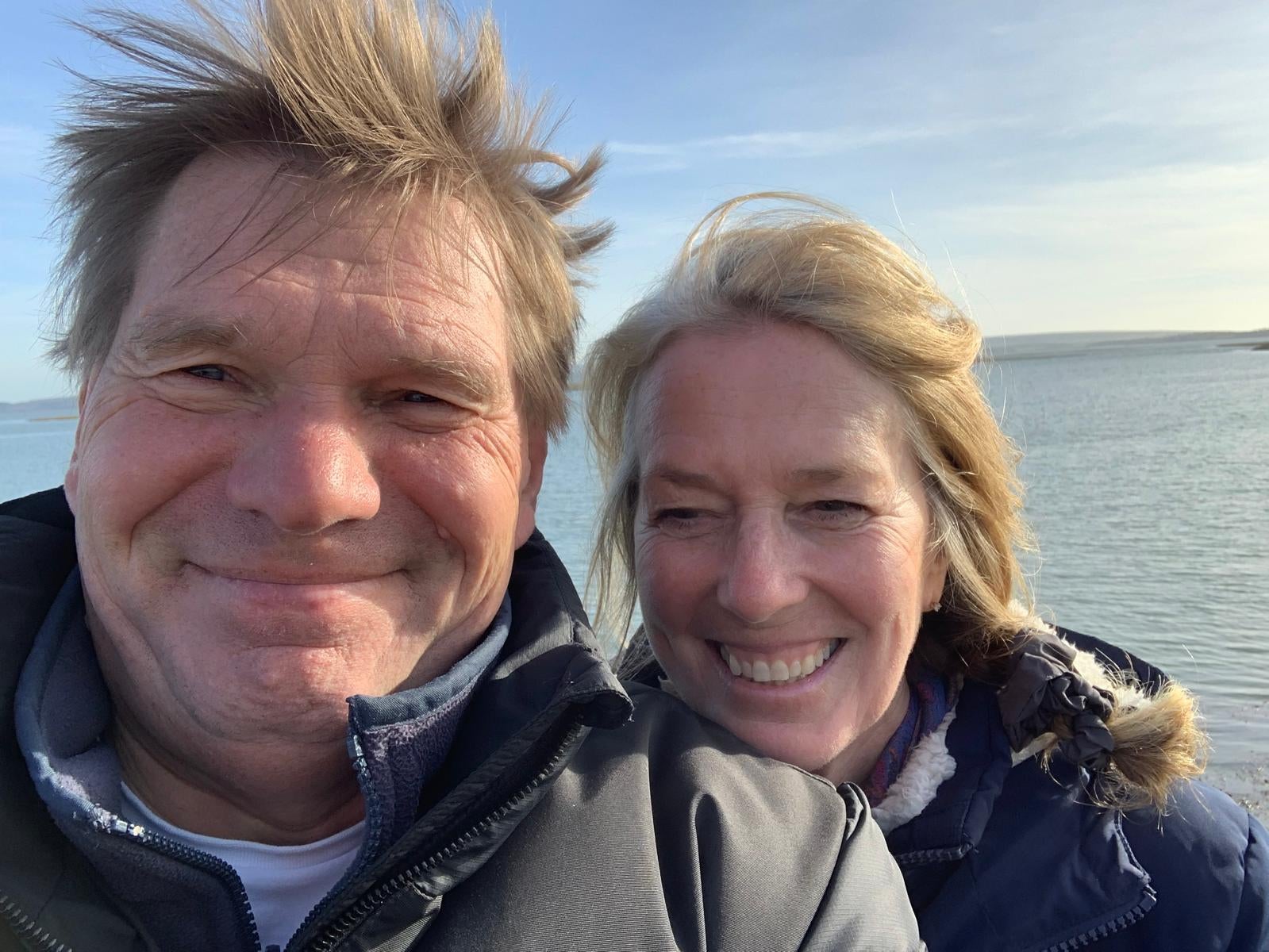
Mark has been on a self-referral system since his diagnosis, meaning patients are able to refer themselves without having to see anyone else first, but after one more year, this will not be available to him.
He and Lynn have therefore discussed the possibility of paying for private scans every year – and he has since agreed for University Hospital Southampton to take pictures of his mastectomy recovery process to help other men who may require the procedure.
While Mark said he “does not know what the future holds”, he currently feels “healthy” and enjoys working with Lynn outdoors away from a computer screen, going on walks, and playing tennis in his spare time.
Mark came across The Men’s VMU after struggling to find support groups for male breast cancer patients online and he said talking to other men who have been affected by the disease has been invaluable.
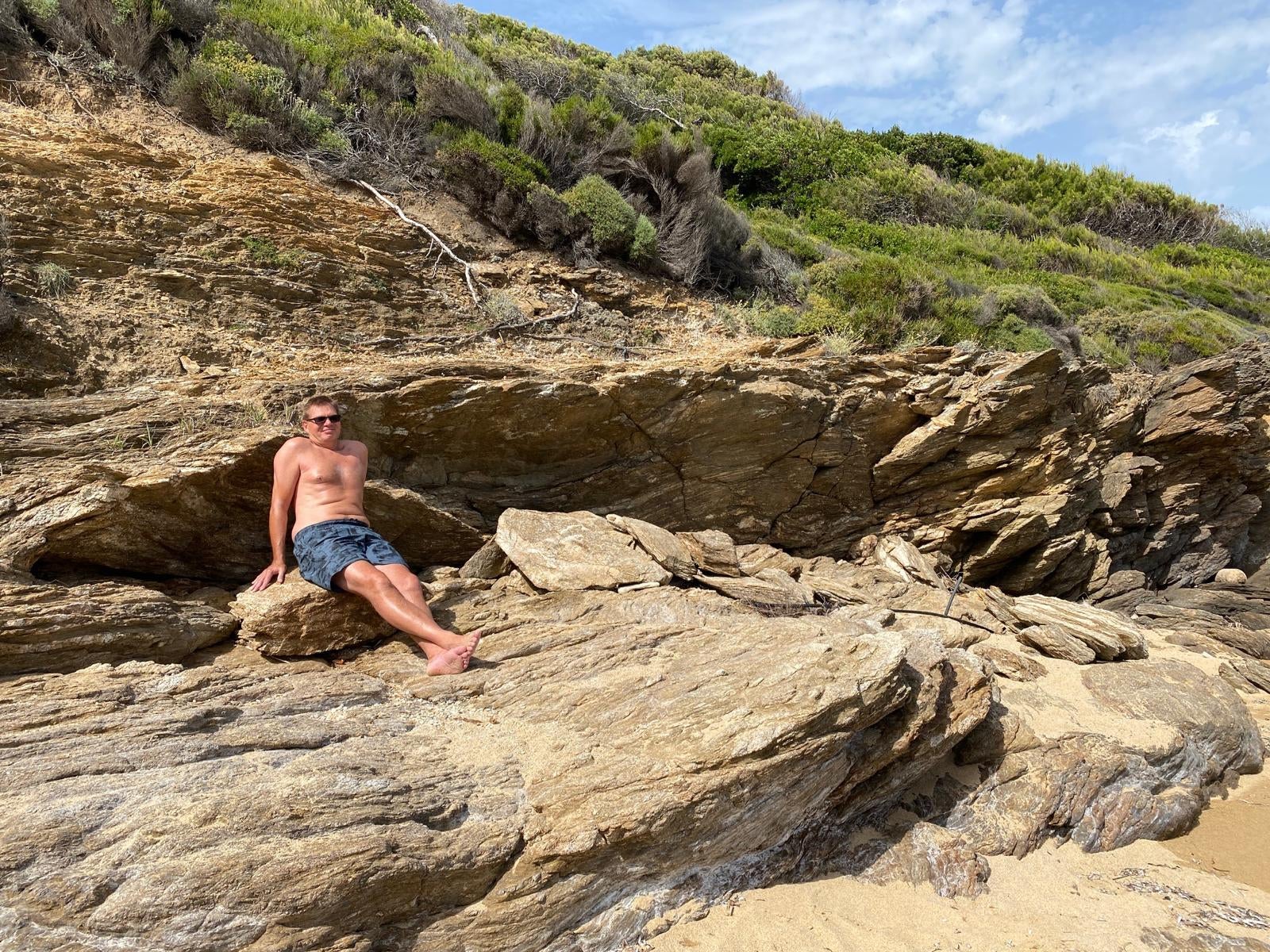
He wants to encourage men to check their breasts regularly and to get any unusual symptoms checked.
“Until I joined The Men’s VMU, I’d never met another man that had had a mastectomy or breast cancer,” Mark said.
“The Men’s VMU has been an amazing group to get in contact with and get support through.
“I try not to think about getting another cancer, but that thought is always there, so I check my remaining breast regularly – and day to day, we just try to maximise what we can out of life.”
To find out more about The Men’s VMU, visit: themensvmu.org.



 Africana55 Radio
Africana55 Radio 
